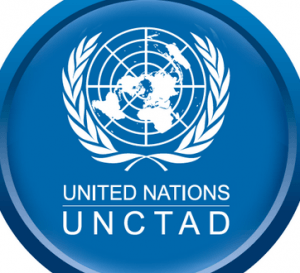Africa contributes just 0.3% to the developing world’s high tech exports – UNCTAD
 While developing countries accounted for 52 per cent of global high technology exports in 2014 – an 18 per cent increase since 2000 – Africa contributed only 0.3 per cent of the high tech exports from developing countries.
While developing countries accounted for 52 per cent of global high technology exports in 2014 – an 18 per cent increase since 2000 – Africa contributed only 0.3 per cent of the high tech exports from developing countries.
Developing countries in Africa have made the lowest contributions to technology exports since 2000, in comparison with their counterparts in Asia and the Americas, according to the Technology and Innovation Report 2015, “Fostering Innovation Policies for Industrial Development” released on December 16, by the UN Conference on Trade and Development (UNCTAD).
Furthermore, due to coordination difficulties, even those African countries that have high expenditure on research and development as a percentage of GDP, are still not able to export high or even medium technology products.
According to the UNCTAD, policies alone are not enough to achieve high technology exports
“Recent studies have shown that it is not enough to just have a policy emphasis on technology-led growth. Instead, the success of policies depends on how policy processes work to facilitate collaboration and cooperation between policy agencies, companies, businesses and research.
Case studies of Ethiopia, Nigeria and Tanzania, showed that though all three countries had elaborate industrial policy frameworks and science, technology and innovation policy frameworks, and had increased research and development expenditure (as a percentage of GDP) since 2000 but faced difficulty in turning those investments into an increase in exports.
Ghana is named among the countries with policy frameworks, having launched a National Science, Technology and Innovation Policy in 2010 and a National Industrial Policy in June 2011.
The report also found that in Africa, firms involved in medium and high tech sectors are often engaged in activities other than product designing, actual production or reverse engineering (the study of technology by deconstructing).
According to the report, many ICT companies in Nigeria and Tanzania were merely providers of ICT services such as internet and call centres.
The UN Conference on Trade and Development, meanwhile stresses that developing countries “are currently at a developmental stage where industrial development through technological change should be a central, if not the most important, priority.”
In November 2015, another UN report, the World Intellectual Property Report 2015, emphasised that three new technologies hold the key to future economic growth: 3D printing, robotics and nanotechnology.
By Emmanuel Odonkor
